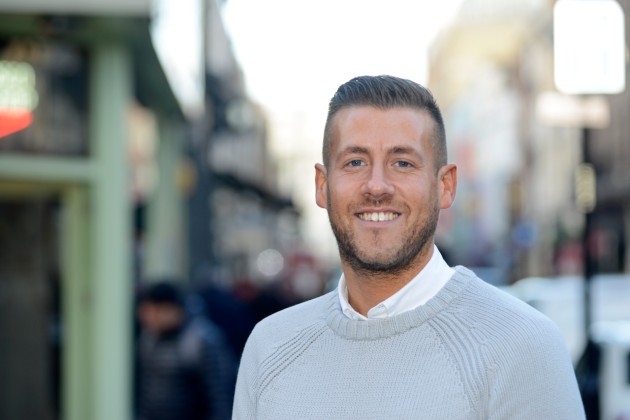Dr Calvin Moorley, Professor of Diversity and Social Justice in the School of Nursing and Midwifery at London South Bank University, was awarded an RCN Fellowship earlier this year.
A Mary Seacole scholar, he is recognised for his work on social justice, focusing on the interplay of gender, race and society on health and health inequalities.
Alongside working with students and carrying out research, he continues to work clinically in the critical care environment at weekends. He shares what becoming an RCN Fellow means to him.
How did you feel when you first heard the news?
Being awarded a Fellowship from the RCN was a great surprise and one of the highlights of my career. Initially I wasn’t quite sure what it meant, but I knew it was a big thing.
When I reflected on the award, I realised that it’s the highest accolade that the RCN can give to a member, but what’s so wonderful about it is that you’re reviewed by your peers.
It’s important we recognise what our colleagues are doing
They value your work, seeing what you do, the contribution you’re making to ��ͷ������, and the impact you’re having. It’s brilliant to have that acknowledgement.
Why were you nominated?
I was nominated for my work in social justice and combatting inequalities in health care. A colleague saw the value and worth of what I do to make things better for patients and staff and recognised that it was worthy of a Fellowship award.
I think it also recognises the contribution I’ve made towards the RCN over the years, including my work with the Mary Seacole awards.
How important is it that the RCN Fellowships reflect the diversity of the ��ͷ������ profession?
It signals to diverse communities that this is something that’s achievable – it's important to have that representation, but it’s not just about ticking boxes. It’s demonstrating the work individuals from minority backgrounds do is valued and recognised by the RCN.
When you’re a Black and minority ethnic leader, you’re also a role model. I am Black Caribbean, male and gay. It’s saying to others, this is what you can aspire to be. It sets the goal, both for aspiration and achievement.
That’s important in communities that have been neglected, where their contribution is not always recognised.
My community really celebrated my Fellowship, my win was also a win for them. It was so important to me that others celebrated it too, that’s what makes it one of the pinnacles of my ��ͷ������ career.
What are the benefits of becoming an RCN Fellow?
The Fellowship provides an extensive network. For me, it includes people I first learned about as a ��ͷ������ student. You read about them in textbooks and papers, and now here they are, as part of this Fellowship.
And it’s not just about networking. It also extends your community for knowledge, practice, collegiality, and support.
Fellows provide a sounding board for any ideas you may have. They can also help influence policy and practice. It brings together a group of leaders and we know that there is unity in strength. Personally, I’m finding more clarity for work that I’m trying to do.
The benefits go beyond status, it opens doors to thoughts, sharing ideas and actions. The RCN Fellows can have a real-world impact as a leadership group.
Is your Fellowship helping you with any specific research projects?
Yes, I have definite plans on how I'll tap into the Fellowship for support and collegial working. The first is research looking at strengthening education around maternal mortality in Nigeria, which provides the third largest number of ��ͷ������ staff coming to the UK to work. I’m looking at how we can work with those Fellows who are involved in public health to make education and health better.
It’s the highest accolade that the RCN can give to a member
If my grant application is successful, I’d like Fellows to be part of an advisory panel. I’m also looking at patient support groups and how they’re represented in hospitals. I’ll be approaching those RCN Fellows who work in clinical practice to see how they might help.
I’ll also be running a pilot project on developing Black and Brown researchers in ��ͷ������ and midwifery, recognising that there are currently very few. I’ll be turning to RCN Fellows for their advice and suggestions on the curriculum, bringing in their expertise. It will also be good to introduce up-and-coming researchers to those who are more established.
Do you plan to use your Fellowship to support and influence the RCN’s work?
Being part of the Fellowship is also about giving back to the RCN – it’s symbiotic. It’s important that Fellows support the RCN’s mission and I’ll be a part of that, using my voice in national spaces, such as Congress, and more locally. Being a Fellow is a badge of honour, so using the title in emails or when you’re an invited guest speaker means you’re advocating for the RCN and all it stands for.
Would you encourage people to nominate others for a Fellowship?
Definitely. It’s important we recognise what our colleagues are doing, but it can only be acknowledged more widely if a nomination is submitted. Look around you and see who you think deserves to be put forward.
Any tips for those considering making a nomination?
Study the nomination form, look at the criteria and the timelines, especially as we’re all really busy people and things can slip. It’s also really important to understand the impact someone has had and how you make that clear to others on the nomination forms.
Find out more
Do you want to nominate someone for an RCN Fellowship? Nominations close 16 January 2024. Find out more about the RCN Awards and how you can make a nomination.








